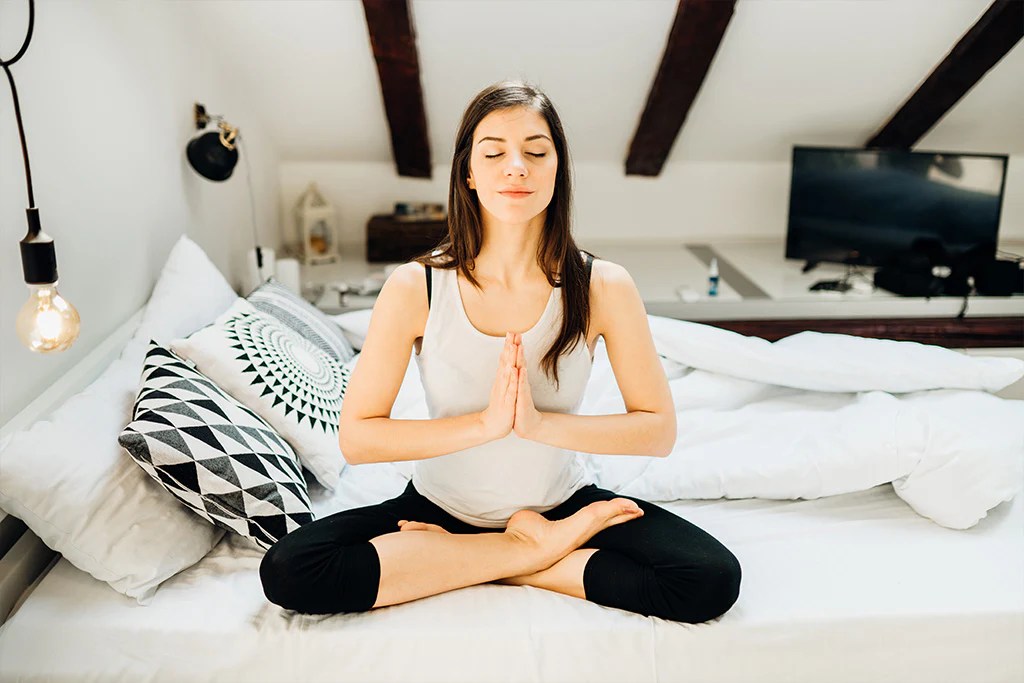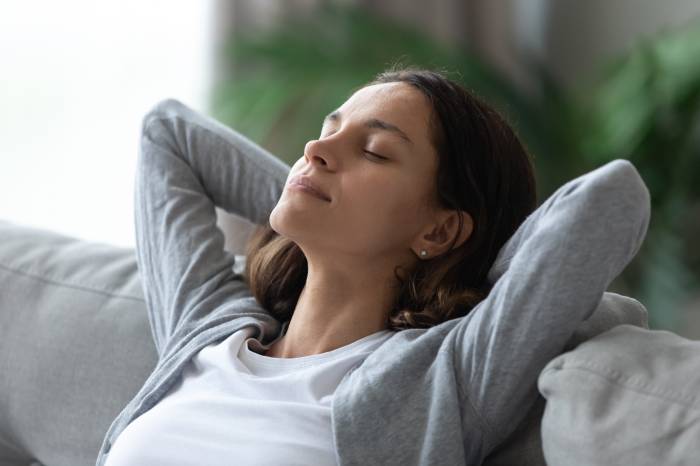Embark on a journey to better sleep with meditation. Discover how simple practices can transform your nights and leave you feeling refreshed each morning.
Explore the different techniques and routines that can pave the way for a peaceful night’s rest, starting with the power of meditation.
Benefits of Meditation for Sleep

Source: amazonaws.com
Meditation offers a range of benefits that can significantly improve the quality of your sleep. By incorporating meditation into your daily routine, you can experience reduced stress and anxiety, leading to a more peaceful and restful night’s sleep. Additionally, meditation has been shown to help ease symptoms of insomnia, allowing for better sleep patterns and overall well-being.
Reduction of Stress and Anxiety
Meditation helps calm the mind and body, reducing the levels of stress and anxiety that can interfere with falling asleep. By practicing mindfulness and focusing on the present moment, individuals can let go of worries and tension, promoting a sense of relaxation that is conducive to a good night’s sleep.
Improved Sleep Patterns
Regular meditation has been linked to improved sleep patterns, including the ability to fall asleep faster and stay asleep throughout the night. By training the mind to be more present and less reactive to negative thoughts, individuals can create a conducive environment for restful sleep without disruptions.
Enhanced Relaxation
Through meditation, individuals can tap into a state of deep relaxation that prepares the body for sleep. By engaging in deep breathing exercises and mindfulness practices, the body can release tension and stress, allowing for a more peaceful and rejuvenating sleep experience.
Management of Insomnia Symptoms
For those struggling with insomnia, meditation can be a valuable tool in managing symptoms and improving sleep quality. By incorporating meditation techniques such as body scans and guided imagery, individuals can calm the mind and body, creating a conducive environment for falling asleep and staying asleep throughout the night.
Types of Meditation Techniques for Sleep

Source: shopify.com
When it comes to meditation techniques for improving sleep, there are several options that can be beneficial. Each technique offers unique approaches to calming the mind and body, ultimately aiding in achieving a restful night’s sleep.
Mindfulness Meditation
Mindfulness meditation involves focusing on the present moment without judgment. It requires paying attention to your thoughts and feelings as they arise, and then letting them go. This technique can help reduce stress and anxiety, creating a sense of relaxation that can lead to better sleep quality.
Guided Imagery
Guided imagery involves visualizing peaceful and calming scenes or scenarios. This technique is often led by a narrator or through recorded audio, guiding the individual through a mental journey that promotes relaxation. By engaging the imagination in a positive way, guided imagery can help quiet the mind and prepare the body for sleep.
Body Scan Meditation
Body scan meditation involves systematically focusing on each part of the body, starting from the toes and moving up to the head. This technique helps increase body awareness and promotes relaxation by releasing tension in different muscle groups. By tuning into physical sensations and letting go of any discomfort or stress, body scan meditation can be an effective way to unwind before bedtime and improve sleep quality.
Setting Up a Meditation Routine for Better Sleep

Source: soundsleepmedical.com
To establish a nightly meditation routine for better sleep, follow these steps:
Create a Calming Environment
- Choose a quiet and comfortable space in your bedroom where you won’t be disturbed.
- Dim the lights or use a soft nightlight to create a relaxing atmosphere.
- Consider using calming scents like lavender or chamomile with essential oils or candles.
Incorporate Meditation into Bedtime Ritual
- Set aside 10-15 minutes before bedtime for your meditation practice.
- Sit or lie down comfortably, close your eyes, and focus on your breath to help calm your mind.
- Use guided meditation apps or videos to assist you in your practice if needed.
Stick to a Consistent Schedule
- Choose a specific time each night to meditate, whether it’s right before bed or earlier in the evening.
- Be consistent with your routine to train your body and mind to associate meditation with sleep.
- Avoid screens and stimulating activities right before bedtime to enhance the effectiveness of your meditation practice.
Mindfulness Practices for Sleep Quality

Source: futurecdn.net
The concept of mindfulness involves being fully present and aware of your thoughts, feelings, and surroundings without judgment. This practice can significantly enhance sleep quality by reducing stress, anxiety, and racing thoughts that often disrupt sleep patterns.
Mindfulness Exercises for Better Sleep
- Body Scan Meditation: This involves focusing on each part of your body, starting from your toes and moving up to your head, noticing any tension or discomfort and consciously relaxing those areas.
- Deep Breathing: Taking slow, deep breaths can help calm the mind and activate the body’s relaxation response, making it easier to fall asleep.
- Loving-Kindness Meditation: This practice involves sending well-wishes and positive thoughts to yourself and others, promoting feelings of compassion and reducing negative emotions that can interfere with sleep.
Mindfulness and Relaxation for Better Sleep Patterns
Practicing mindfulness helps cultivate a sense of relaxation and calmness, which are essential for improving sleep patterns. By focusing on the present moment and letting go of worries about the past or future, mindfulness can create a mental space conducive to falling asleep more easily and staying asleep throughout the night.
Last Word

Source: medium.com
In conclusion, integrating mindfulness into your bedtime routine can lead to improved sleep quality and overall well-being. Embrace the tranquility of meditation and unlock the door to a more peaceful slumber.